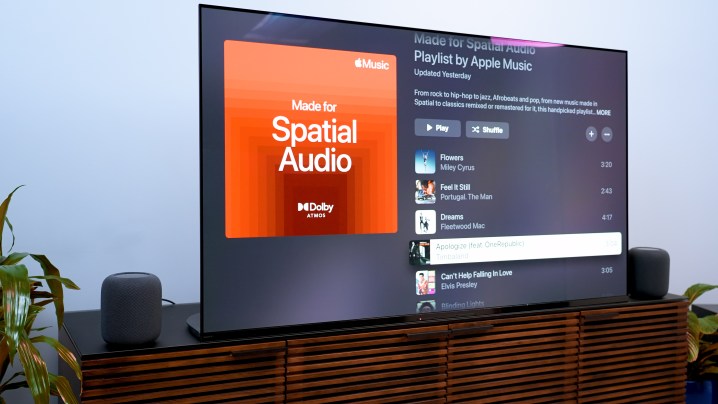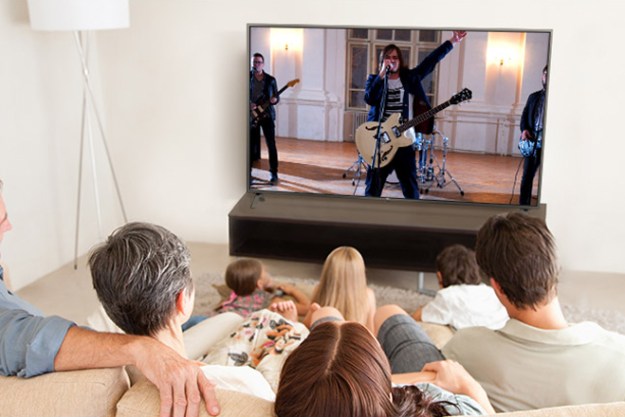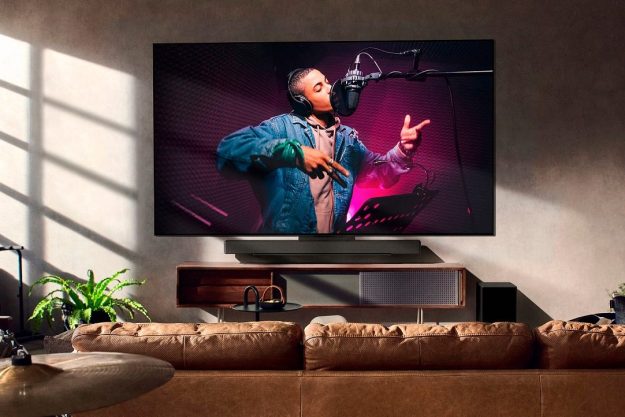Apple’s wireless platform for audio and video streaming — AirPlay — is one of the best ways to play music from an Apple device to a wireless speaker. When at home, on a Wi-Fi network, it outperforms Bluetooth thanks to its wider bandwidth. The conventional wisdom has always been that AirPlay sets a hard limit on audio quality: iPhones and other Apple devices can only transmit lossless CD-quality audio, at 16-bit/44.1kHz, to an AirPlay-enabled speaker, leaving the technology incapable of supporting the higher-res streams now being offered by Apple Music and others. But it seems that AirPlay can actually do 24-bit audio. Sort of.

The new second-gen HomePod, which Apple released in January, can stream lossless 24-bit/48kHz audio directly from Apple Music, using its own Wi-Fi connection to the internet. This isn’t news: Apple added 24-bit lossless playback (via Apple’s ALAC codec) to the first-gen HomePod and HomePod mini in 2021, along with Dolby Atmos support.
However, I was surprised to learn that the HomePod can also stream this better-than-CD-quality 24-bit/48kHz audio using AirPlay. I was so struck by Apple’s apparent expansion of AirPlay’s capability, I checked to see if the specification had changed. It hasn’t. How is this even possible?
It turns out that there’s a nuance to the HomePod’s use of AirPlay. It remains true that when you stream from a device like an iPhone to an AirPlay speaker, the stream is limited to 16-bit/44.1kHz. However, when a HomePod grabs a stream natively from Apple Music, it can share that stream with one or more additional HomePods (for the purposes of multiroom or stereo-pairing). It does this using AirPlay and can do so at up to 24-bit/48kHz.

The surprise here isn’t that two HomePods can share audio wirelessly at 24/48. That’s how multiple HomePods can play the same stream in sync with no loss in quality. What’s surprising is that they use AirPlay to do it.
So we’re left with something of a mystery. If AirPlay can manage better than CD quality when streaming from one HomePod to another, why can’t it do the same thing from an iPhone to an AirPlay speaker, even when the speaker in question is a HomePod?
As a Wi-Fi-based streaming protocol, there’s never been a physical reason why AirPlay should be limited to just CD quality. After all, Chromecast has long been able to support up to lossless 24-bit/96kHz, and DTS Play-Fi makes a similar claim. Denon’s Wi-Fi-based HEOS system can go as high as 24-bit/192kHz.
Why, you may be wondering, do we even care about 24-bit audio? Isn’t CD quality perfectly fine? No question about it, CD quality is generally considered excellent, even by some of the most ardent audiophiles. And yet, that hasn’t stopped the industry from shifting to so-called hi-res audio, a level of quality that many regard as being noticeably better than good ol’ CD quality.
Whether you can actually hear the difference or not will depend on a wide variety of factors. I won’t get into that debate here. Instead, I’ll simply point out that there’s a disconnect between the quality level Apple has chosen to support on its own streaming music service (Apple added 24-bit lossless tracks to its Apple Music catalog in 2021) and the quality level supported by its other audio technologies, including AirPlay.
If Apple sees fit to expand AirPlay beyond its current CD quality constraints, which it looks like it is capable of doing, it will go a long way to helping people hear what they (may have been) missing.
Editors' Recommendations
- Apple has upgraded the AirPods Pro with lossless audio, sort of
- C’mon, Apple — if Sonos can admit it was wrong about Bluetooth, so can you
- Can hybrid wireless earbuds fix the lossless audio problem?




